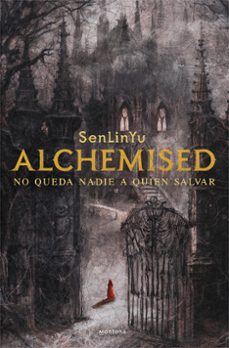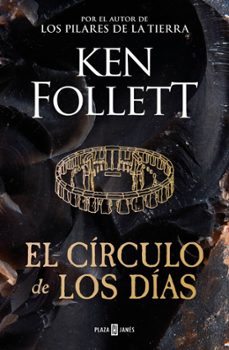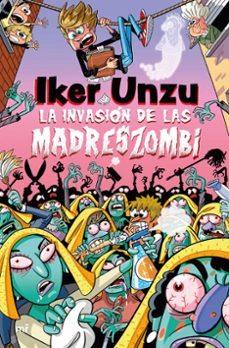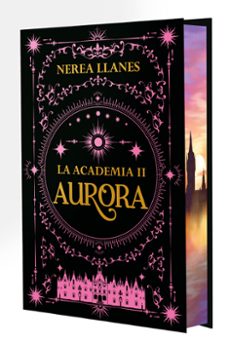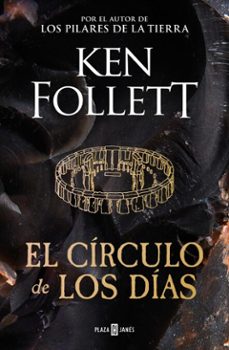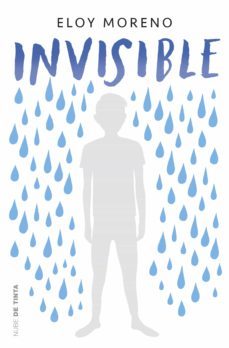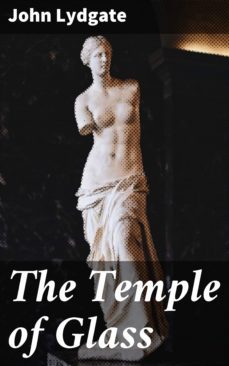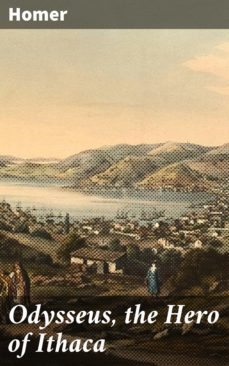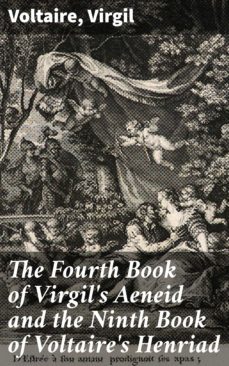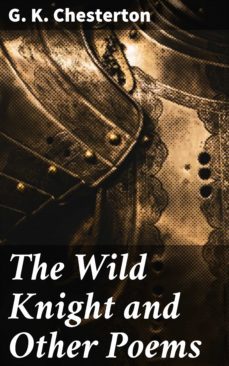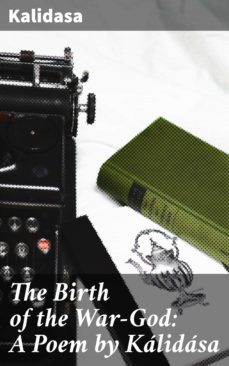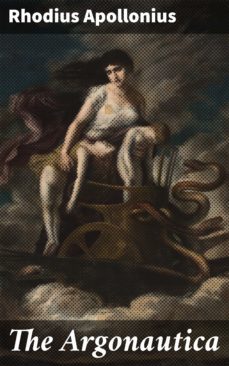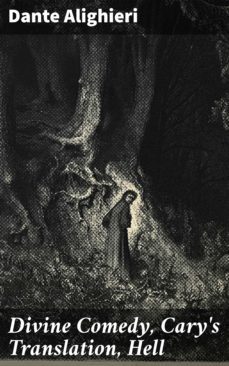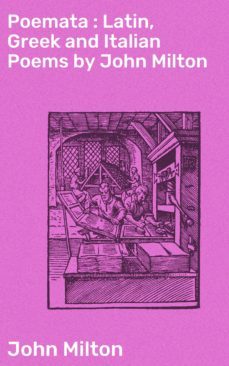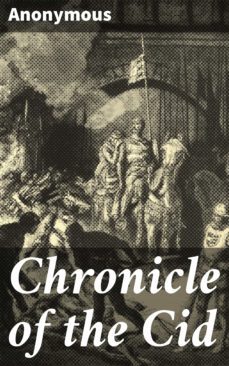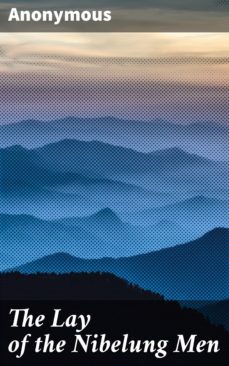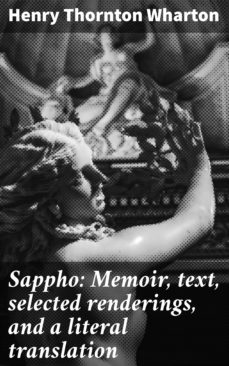Imprescindibles
Ficción
Literatura ContemporáneaEstudios literariosClásicosCuentosPoesíaTeatroLibros de bolsillo Sagas literarias
Géneros literarios Novela romántica y eróticaNovela negraNovela históricaNarrativa fantásticaNovela de ciencia ficciónNovela de terrorNarrativa de humorNarrativa de viajes
No Ficción
Ciencias y tecnología BiologíaCienciasCiencias naturalesDivulgación científicaInformáticaIngenieríaMatemáticasMedicinaSalud y dietas Formación Idiomas Estilo de vida Libros de CocinaGuías de viajeNarrativa de viajesDeportesLibros de JuegosManualidades
Humanidades Autoayuda y espiritualidadCiencias humanasDerechoEconomía y EmpresaPsicología y PedagogíaFilosofíaSociología Filología BiblioteconomíaEstudios filológicosEstudios lingüísticosEstudios literariosHistoria y crítica de la Literatura
Infantil
Juvenil
Cómic y Manga
Novela gráfica Novela gráfica americanaNovela gráfica europeaNovela gráfica de otros países Personajes, series y sagas Series y sagasStar Wars Superhéroes Cómics DCCómics MarvelCómics otros superhéroesCómics Valiant
eBooks
Literatura ContemporáneaNarrativa fantásticaNovela de ciencia ficciónNovela de terrorNovela históricaNovela negraNovela romántica y erótica Juvenil Más de 13 añosMás de 15 años Infantil eBooks infantiles
Humanidades Autoayuda y espiritualidadCiencias humanasEconomía y EmpresaPsicología y PedagogíaFilosofía Historia Historia de EspañaHistoria Universal Arte CineMúsicaHistoria del arte
Ciencia y tecnología Ciencias naturalesDivulgación científicaMedicinaSalud y dietas Filología Estudios lingüísticosEstudios literariosHistoria y crítica de la Literatura Estilo de vida CocinaGuías de viajeOcio y deportes
eBooks de Poesía clásica española hasta el siglo XVIII, página 17 de 21
Te puede interesar
Filtros
Del 321 al 340 de 409
Good Press 4064066194246
In "The Departing Souls Address to the Body: A Fragment of a Semi-Saxon Poem," readers are presented with a poignant and introspective exploration of the spiritual and physical divide at the moment of death. This semi-Saxon poem, rich in metaphor and allegory, encapsulates the souls poignant farewell to its corporeal form, inviting reflections on mortality, identity, and the souls ultimate journey. The poems lyrical quality and rhythmic cadences resonate with a deep philosophical inquiry characteristic of medieval literature, situating it within a tradition that grapples with existential questions and the human experience of loss. The poemAos authorship is shrouded in the complexities of the medieval period, where multiple voices and regional dialects converged to influence literary creation. This fragmentary piece exemplifies the cultural milieu of semi-Saxon writing during a time when questions of faith and the afterlife were paramount to societal consciousness. The melding of vernacular and spiritual themes may suggest an author deeply engaged in the religious and metaphysical discourses of their time, reflecting a personal or collective grappling with the transcendent. Readers who seek a meditative engagement with themes of death, separation, and the nature of existence will find "The Departing Souls Address to the Body" an enriching addition to their literary journey. Offering both aesthetic pleasure and intellectual stimulation, this text invites individuals to reflect on their own beliefs regarding life, death, and what may lie beyond, thus making it an essential read for those drawn to explorations of the human condition.
Ver más
eBook
Good Press 4064066185275
In "Ballades and Verses Vain," Andrew Lang masterfully orchestrates a rich tapestry of verse, weaving together themes of love, loss, and the ephemeral nature of beauty. The collection, characterized by its lyrical elegance and rhythmic sophistication, draws from the traditional ballade form while also reflecting Langs engagement with contemporary literary movements. The poems resonate with a poignant introspection, showcasing LangAos adept use of irony and vivid imagery, as he navigates the complexities of human emotion against the backdrop of a rapidly changing world in the late 19th century. Andrew Lang, a polymath and devoted folklorist, was deeply influenced by the mythological richness of his Scottish heritage and his extensive travels. His scholarly pursuits and friendships with notable figures of his time shaped his poetic sensibilities, particularly evident in this collection. LangAos dual role as a collector of folklore and a lyric poet enables him to bridge the gap between the past and the present, imbuing his work with both depth and accessibility. "Ballades and Verses Vain" is a must-read for admirers of lyrical poetry and those seeking to understand the intricate interplay of tradition and innovation in verse. LangAos enchanting poetic voice invites readers to reflect on their own experiences of beauty and sorrow, making this collection a timeless addition to the canon of English literature.
Ver más
eBook
Good Press 4064066191351
John Lydgates "The Temple of Glass" is a rich, allegorical poem that intertwines themes of morality, virtue, and the human condition, set against a backdrop of lifeAos transitory nature. Written in the early 15th century, this work showcases Lydgates mastery of the Middle English vernacular, employing a narrative style that is both didactic and reflective. The poem is imbued with intricate imagery and a layered structure, resembling a dream vision, which denotes LydgateAos engagement with contemporary literary forms and his admiration for Chaucer, all while highlighting the perennial search for spiritual enlightenment amidst earthly distractions. As a Benedictine monk and a prominent poet of his time, Lydgates life was steeped in the cultural and spiritual milieu of medieval England. His extensive education and experience in various monastic settings afforded him a unique perspective on human frailty and redemption. Influenced by the works of Dante and his predecessors, Lydgate harnessed his poetic talents to confront the moral dilemmas of his era, seeking to guide readers toward a virtuous life through allegorical explorations. For those interested in medieval literature and the philosophical inquiries of the human experience, "The Temple of Glass" offers profound insights and aesthetic pleasures. This text is not only a testament to Lydgates poetic prowess but also an essential exploration of moral integrity and faith that remains relevant for contemporary readers.
Ver más
eBook
Good Press 4064066192822
In "Odysseus, the Hero of Ithaca," Homer weaves a rich tapestry of epic poetry that chronicles the ten-year journey of Odysseus as he confronts mythical creatures, divine intervention, and the trials of his own endurance. Written in dactylic hexameter, this timeless work illuminates themes of heroism, loyalty, and the longing for home. Set against the backdrop of ancient Greek culture, it reflects the values and struggles of its time, showcasing the heros internal conflicts and the potent interplay between fate and free will. Homer, the legendary blind poet of ancient Greece, is believed to have penned this masterpiece during the 8th century BCE. His vast experiences likely informed the deeply humanistic portrayal of Odysseus, a character who embodies both bravery and vulnerability. Considered a foundational figure in Western literature, HomerAos insights into the human condition resonate across eras, revealing his keen understanding of the complexity of heroism and the search for identity amid chaos. "Odysseus, the Hero of Ithaca" is a must-read for anyone interested in epic narratives that explore universal themes of perseverance and resilience. This work not only enchants with its lyrical beauty but also invites readers to reflect on their own voyages through the unpredictable seas of life.
Ver más
eBook
OEHLENSCHLAGER, ADAM
Good Press 4064066201715
In "The Gods of the North," Adam Oehlenschlger weaves a rich tapestry of Norse mythology, elevating ancient legends to poetic heights. This epic poem combines vivid imagery with a lyrical style, mirroring the dramatic cadence of the sagas that inspired it. Oehlenschlgers innovative use of meter and rhyme encapsulates a unique fusion of Romanticism and national romanticism, responding to Denmarks cultural identity in the early 19th century while exploring themes of heroism, fate, and the supernatural. The text invites readers into a world steeped in the ethos of Norse gods, replete with the struggles of mortals and the omnipotence of divine forces. Oehlenschlger, often considered the father of Danish poetry, draws deeply from both classical sources and his own profound connection to Danish folklore. Living during a time of national fervor and identity reconstruction, his works reflect the burgeoning Romantic idealism that characterized the period, urging a return to nature and myth. His earlier exposure to themes of nature, ancient lore, and cultural roots profoundly influenced the creation of "The Gods of the North." This book is a must-read for anyone interested in the interplay between mythology, literature, and national identity. Its enchanting verses and profound exploration of ancient tales offer both a scholarly and an emotional connection to the ancestral past, making it essential for aficionados of epic poetry and Norse folklore alike.
Ver más
eBook
Good Press 4064066241353
In the intellectually stimulating anthology The Fourth Book of Virgils Aeneid and the Ninth Book of Voltaires Henriad, readers are invited to explore themes of heroism, destiny, and the interplay of power and morality. This collection juxtaposes the poetic grandeur of VirgilAos vivid descriptions of ancient epic journeys with VoltaireAos incisive prose that questions authority and critiques the societal structures of his time. Within this rich tapestry of storytelling, the two iconic works reflect on the human condition through both classical and Enlightenment-era lenses, challenging readers to draw connections across temporal and cultural divides. The anthology serves as a significant convergence of Latin and French literary heritage, featuring the works of Virgil, a towering figure of Roman literature, and Voltaire, a master of rhetoric and satire. Their writings encapsulate pivotal movements: the former, rooted in the Augustan Ages classicism, and the latter, a product of the Enlightenments intellectual dynamism. Together, these authors bring forth a diverse dialogue that not only underscores the shared continuity in theme but also highlights the divergent evolutions of literary expression across centuries. For scholars and enthusiasts alike, this collection offers a unique gateway to comprehending the continuities and contrasts in Western literature. It not only educates but also inspires critical thought through its compilation of distinct perspectives, imbuing readers with a profound understanding of the transformative power of literature. This anthology stands as a testament to the enduring conversations between texts, inviting readers to appreciate the historicity and cultural richness encapsulated within these exemplary works.
Ver más
eBook
Good Press 4057664568274
In "Ballads of Romance and Chivalry," Frank Sidgwick weaves an intricate tapestry of poetic forms, evoking the heroic ideals and romantic quests that define the medieval chivalric tradition. This collection marries lyrical finesse with narrative depth, capturing the essence of valor, love, and loss. Sidgwicks deft alignment with the folk ballad style lends a timeless quality to his work, navigating both the whimsical and the profoundAimasterfully reflecting the literary heritage of Romanticism and the Victorian fascination with medieval themes. The poems resonate with universal themes while embracing archaisms that immerse the reader in a vivid historical context. Frank Sidgwick, a notable scholar and poet of the late 19th and early 20th centuries, cultivated his literary career amidst the burgeoning revival of interest in medieval literature. His scholarly background, particularly in the study of ballads and folk songs, informs the rich authenticity of this work. SidgwickAos erudition and passion for the lyrical tradition illuminate the depth of his understanding of the timeless human experiences portrayed within these ballads. "Ballads of Romance and Chivalry" is an indispensable read for anyone interested in medieval literature, poetic forms, or the expression of chivalric ideals. SidgwickAos work promises to charm and inspire, inviting readers to embark on their own romantic journeys through the enchanting landscapes of the past.
Ver más
eBook
Good Press 4057664562920
In "The Odes of Anacreon," Thomas Moore masterfully translates and interprets the ancient Greek poet Anacreons celebrated verses, breathing new life into this collection of lyrical poetry that reflects themes of love, wine, and the pleasures of life. Moores engaging literary style melds elegance with accessibility, capturing the essence of Anacreons bacchanalian revelry through rich imagery and fluid rhythm. His contextualization of the original text situates it within the broader tapestry of Romantic poetry, echoing the eras fascination with classical antiquity and the exploration of human emotion. Thomas Moore (1779-1852) was an Irish poet, singer, and songwriter known for his profound ability to transcend cultural boundaries through his art. His deep appreciation for classical literature, along with his own tumultuous experiences in a politically charged era, inspired him to delve into the works of poets like Anacreon. Moores background as a skilled translator and a prominent figure in the Romantic movement allowed him to infuse his interpretations with both personal resonance and cultural depth. Readers seeking a blend of classical charm and Romantic sensibility will find "The Odes of Anacreon" an enriching addition to their literary exploration. Moores translations remain faithful to the spirit of Anacreon while simultaneously inviting modern readers to indulge in the joys and sorrows of human experience articulated through timeless verse.In this enriched edition, we have carefully created added value for your reading experience:- A comprehensive Introduction outlines these selected works unifying features, themes, or stylistic evolutions.- A Historical Context section situates the works in their broader erasocial currents, cultural trends, and key events that underpin their creation.- A concise Synopsis (Selection) offers an accessible overview of the included texts, helping readers navigate plotlines and main ideas without revealing critical twists.- A unified Analysis examines recurring motifs and stylistic hallmarks across the collection, tying the stories together while spotlighting the different works strengths.- Reflection questions inspire deeper contemplation of the authors overarching message, inviting readers to draw connections among different texts and relate them to modern contexts.- Lastly, our handpicked Memorable Quotes distill pivotal lines and turning points, serving as touchstones for the collections central themes.
Ver más
eBook
Good Press 4057664586964
In "The Wild Knight and Other Poems," G. K. Chesterton crafts a rich tapestry of verse that embodies his characteristic wit and philosophical depth. This collection explores themes of chivalry, faith, and the human condition through a romantic lens, blending a modern sensibility with a medieval aesthetic. Chestertons lyrical style, replete with vivid imagery and striking metaphors, invites readers to traverse landscapes of both the external world and the inner psyche, often challenging the conventions of contemporary poetry by celebrating the heroic and the fantastical. The collection resonates with the spirit of the early 20th century, reflecting the burgeoning tension between industrial modernity and the timeless ideals of bravery and honor. G. K. Chesterton, a prominent English writer and philosopher, was known for his keen intellect and profound sense of humor. His diverse literary career spanned novels, essays, and poetry, influenced by his deep Christian faith and belief in the value of common sense. Chestertons observations on society and the individual are profoundly colored by his experiences as a journalist and critic, leading to a deep appreciation for the narratives that weave through the fabric of life. For those seeking to immerse themselves in the lyrical beauty and philosophical undertones of early 20th-century poetry, "The Wild Knight and Other Poems" is an invaluable addition to any literary collection. Chestertons enchanting exploration of themes such as courage and spirituality will resonate with readers who appreciate not only the artistry of language but also the profound questions it provokes.In this enriched edition, we have carefully created added value for your reading experience:- A comprehensive Introduction outlines these selected works unifying features, themes, or stylistic evolutions.- The Author Biography highlights personal milestones and literary influences that shape the entire body of writing.- A Historical Context section situates the works in their broader erasocial currents, cultural trends, and key events that underpin their creation.- A concise Synopsis (Selection) offers an accessible overview of the included texts, helping readers navigate plotlines and main ideas without revealing critical twists.- A unified Analysis examines recurring motifs and stylistic hallmarks across the collection, tying the stories together while spotlighting the different works strengths.- Reflection questions inspire deeper contemplation of the authors overarching message, inviting readers to draw connections among different texts and relate them to modern contexts.- Lastly, our handpicked Memorable Quotes distill pivotal lines and turning points, serving as touchstones for the collections central themes.
Ver más
eBook
Good Press 4057664579935
In "Poems By the Way," William Morris presents a collection of lyrical verses that reflect his deep appreciation for nature, love, and the ephemeral moments of life. This work, characterized by its rich imagery and rhythmic language, captures the essence of the Pre-Raphaelite movement, intertwining themes of beauty and social critique. MorrisAos engagement with medievalism and his nuanced reflections on contemporary issues are particularly evident, as he juxtaposes vivid portrayals of the natural world with a longing for a more harmonious society. The poems encapsulate his fervent belief in the transformative power of art and poetry, delivered through a style that is both accessible and profound. William Morris (1834-1896), a prominent figure in the Arts and Crafts Movement, was not only a poet but also a designer, Marxist thinker, and social activist. His commitment to craftsmanship and beauty in everyday life was rooted in a reaction against the industrialization of his time. "Poems By the Way" arose from his exploration of aesthetic ideals amidst societal challenges, echoing his personal journey towards a more utopian vision of the world. Readers seeking a poignant reflection on lifes fleeting beauty will find Morriss work deeply resonant. "Poems By the Way" invites contemplation on the complexity of human experience while also serving as a profound critique of the socio-economic realities of the Victorian era. This collection is essential for those interested in the intersections of art, politics, and poetics.
Ver más
eBook
Good Press 4057664580849
Kalidasas The Birth of the War-God: A Poem by Kálidása is a classic Sanskrit epic that delves into the story of the birth of the god Skanda as the son of Shiva and Parvati. The poem is known for its intricate storytelling, vivid imagery, and lyrical language, making it a timeless work of Indian literature. Kalidasas use of metaphor and symbolism adds depth to the narrative, highlighting the divine nature of the central characters and themes of love, sacrifice, and destiny. This epic poem is a reflection of the rich literary tradition of ancient India, showcasing the poets mastery of language and storytelling techniques. It is a must-read for anyone interested in classical Indian literature and mythology. Kalidasa, often regarded as the Shakespeare of India, was a renowned poet and playwright from the Gupta period. His works are celebrated for their elegance and complexity, showcasing his deep understanding of human emotions and the natural world. The Birth of the War-God is a prime example of Kalidasas poetic genius, demonstrating his ability to weave together myth and philosophy in a seamless narrative. His contributions to Sanskrit literature have earned him a lasting legacy as one of the greatest poets in Indian history. I highly recommend The Birth of the War-God: A Poem by Kalidasa to readers interested in exploring the beauty and depth of classical Indian poetry. Kalidasas masterful storytelling and poetic prowess make this epic a captivating read for anyone looking to immerse themselves in the world of ancient Indian mythology and literature.
Ver más
eBook
Good Press 4057664602732
In "The Epic," Lascelles Abercrombie presents a comprehensive exploration of the epic genre, engaging critically with its historical evolution and thematic richness. With a poetic sensibility, Abercrombie dissects the essential characteristics of epic poetry, drawing upon classical examples as well as modern interpretations. His analytical style is marked by clarity and insight, providing a thoughtful examination of epics in relation to cultural and historical contexts, while emphasizing their enduring relevance in contemporary literature. The book stands as a significant contribution to literary criticism, inviting readers to appreciate the artistry and grandeur of epic narratives. Lascelles Abercrombie, a prominent figure in the early 20th-century British literary scene, was influenced by the backdrop of the Great War and the changing tides of modernism. His background in academia, combined with a deep engagement with poetic form, propelled him to investigate literary tradition and innovation. Abercrombies own poetic works resonate with the themes he discusses, indicating his personal investment in the epicAos narrative possibilities and the emotional breadth of its storytelling. For scholars, students, and enthusiasts of literature, "The Epic" is a vital resource that bridges the chasm between ancient traditions and contemporary criticism. AbercrombieAos insights not only illuminate the complexities of epic poetry but also enhance our appreciation of its cultural significance. This book is highly recommended for anyone seeking to deepen their understanding of literary heritage and the power of storytelling.
Ver más
eBook
E-ARTNOW 4057664556295
Don Juan is a satiric poem by Lord Byron, based on the legend of Don Juan, which Byron reverses, portraying Juan not as a womanizer but as someone easily seduced by women. As a young man he is precocious sexually, and has an affair with a friend of his mother. The husband finds out, and Don Juan is sent away to Cadiz. On the way, he is shipwrecked, survives and meets the daughter of a pirate, whose men sell Don Juan as a slave. A young woman, who is a member of a sultans harem, sees that this slave is purchased. She disguises him as a girl and sneaks him into her chambers. Don Juan escapes, joins the Russian army and rescues a Muslim girl named Leila. Don Juan meets Catherine the Great, who asks him to join her court. Don Juan becomes sick, is sent to England, where he finds someone to watch over Leila. Moving from one place to the next, Don Juan encounters new women and new adventures.
Ver más
eBook
Good Press 4057664615688
The Argonautica, a monumental epic by Rhodius Apollonius, chronicles the daring voyage of Jason and the Argonauts as they seek the fabled Golden Fleece. Richly interwoven with themes of heroism, divine intervention, and the complex interplay of love and ambition, Apollonius employs a sophisticated literary style that blends traditional epic narrative with innovative character development. Set against the backdrop of the mythological landscape of ancient Greece, the poem not only revisits familiar legends but also reinterprets them, emphasizing emotional depth and the psychological intricacies of its characters, particularly the tormented figure of Medea. Apollonius, a prominent figure of the Hellenistic era, was deeply influenced by the works of earlier poets, notably Homer and Hesiod, yet sought to carve his unique literary identity. His experiences in the culturally vibrant city of Alexandria provided a fertile ground for his poetic endeavors, where he was both a scholar and a poet, reflecting the complexities of human emotions in a rapidly changing world. This juxtaposition between scholarly pursuits and lyrical creativity culminated in a rich tapestry of narrative artistry in The Argonautica. For readers intrigued by the intersections of mythology, heroism, and the intricacies of human relationships, The Argonautica is an essential exploration of ancient literature that remains profoundly relevant. It invites readers to not only traverse a fantastical voyage but also to grapple with the timeless themes of desire and conflict that resonate through the ages. An indispensable addition to any literary library, this work captivates both scholars and casual readers alike.
Ver más
eBook
Good Press 4057664617132
Dante Alighieris Divine Comedy, Carys Translation, Hell is a monumental work of literature, intricately weaving together rich allegory, vivid imagery, and profound philosophical reflections. The book is divided into three partsAiHell, Purgatory, and ParadiseAiyet this translation focuses specifically on the harrowing journey through the infernal realms. Dante employs a terza rima rhyme scheme that enhances the lyrical quality of his verse, while the use of first-person narration immerses readers in his allegorical pilgrimage toward redemption and divine love. The text offers a probing social critique of 14th-century Florence and beyond, as Dante encounters historical and mythological figures, each emblematic of moral and ethical dilemmas, thus establishing itself as a cornerstone of medieval literature. Dante Alighieri, a poet, philosopher, and political figure of his time, crafted Divine Comedy during his exile, grappling with personal, civic, and spiritual turmoil. His breadth of knowledge in philosophy, theology, and the classical tradition reflects his deep engagement with the issues surrounding morality, justice, and the human condition. Dantes own experiences of exile and loss are intricately interwoven into this literary tapestry, creating not only a powerful aesthetic experience but also a deeply personal exploration of the souls journey toward God. This translation, rendered by Henry Francis Cary, captures the rhythmic beauty of DanteAos original Italian, making the work accessible to contemporary audiences while preserving its intricate nuances. Divine Comedy, Carys Translation, Hell is an essential read for those interested in classical literature, philosophy, and human spirituality. Whether for scholarly study or personal inspiration, Dantes timeless insights into the human experience resonate with readers across ages, inviting contemplation and introspection.
Ver más
eBook
Good Press 4057664588548
In "Poemata: Latin, Greek and Italian Poems," John Milton presents a remarkable anthology of his poetic works written in classical languages. This collection showcases Miltons mastery of form, employing the elegance of classical rhetoric and the lyrical beauty found in pastoral and epic traditions. As a precursor to his more renowned works such as "Paradise Lost," these poems reveal the depth of Miltons intellectual engagement with the classical canon, highlighting his commitment to blending personal experience with universal themes of virtue, beauty, and divine providence. Each piece reflects not only Miltons technical skill but also his intimate knowledge of the Greek and Roman poetic heritage, marking a significant contribution to early modern literature. John Milton, a titan of English literature, was deeply influenced by the cultural currents of the Renaissance and his extensive studies in the humanities. His education at Christs College, Cambridge, equipped him with a robust understanding of classical texts, which often served as a backdrop for his own creative endeavors. The poems in this collection can be seen as a foundational part of his evolving poetic identity, steering him towards his eventual, grander works that interrogate human existence and theological discourse. For readers seeking a greater understanding of MiltonAos intellectual roots and artistic vision, "Poemata" serves as both a linguistic and thematic exploration of his early poetic ambitions. It invites scholars and poetry enthusiasts alike to appreciate the beauty and complexity of MiltonAos oeuvre, revealing the classical influences that shaped an author who would profoundly impact English literature.
Ver más
eBook
Good Press 4057664587992
The "Chronicle of the Cid" offers a profound glimpse into the life and exploits of Rodrigo Daz de Vivar, a legendary figure of Spanish history, who is often referred to as El Cid. Written in the medieval tradition, this narrative embodies the ethos of chivalry while intertwining historical events with an almost mythic quality. Through a mix of prose and verse, the text adeptly captures the complexities of loyalty, honor, and the socio-political landscape of 11th-century Spain, where Reconquista tensions and the interplay between Christians and Moors are vividly portrayed. The work stands as a testament to the rich oral storytelling traditions of the time and is crucial in understanding the cultural fabric of medieval Iberia. The author, shrouded in anonymity, likely wrote during a period when many were fascinated by heroic narratives of figures like El Cid, drawing upon historical accounts and folklore to create a compelling narrative that resonated with the values and aspirations of contemporary society. This blend of fact and legend may reflect a longing for unity and national identity during a fragmented historical epoch. For readers interested in the intersection of history and literature, the "Chronicle of the Cid" is an indispensable work that transcends its temporal origins. It invites reflection on themes of heroism, identity, and the enduring struggle for justice, making it a profound and enriching read for scholars, students, and enthusiasts of traditional epic tales.
Ver más
eBook
Good Press 4057664588821
The Lay of the Nibelung Men is a significant contribution to the realm of epic poetry, drawing from a rich tapestry of Germanic legends and mythological themes. The text is noted for its intricate narrative structure, weaving together tales of heroism, betrayal, and the inexorable fate that befalls its characters. Written in a compelling lyrical style, the poem employs alliterative verse and vivid imagery, which not only enhances its oral tradition roots but also highlights the cultural milieu of medieval Europe. This masterpiece resonates with historical undercurrents, reflecting the societal values and existential tensions of its time, particularly concerning the concepts of honor and vengeance. The identity of the author remains shrouded in mystery, aptly fitting the enigmatic nature of the tale itself. Likely composed in the early 13th century, the authorAos background was steeped in the oral storytelling tradition, with influences from Norse mythology and the sagas of the Germanic tribes. This amalgamation of cultures and narratives implies a deep engagement with themes of fate and moralityAiindicative of a societal grappling with the nature of heroism in a world marked by conflict and change. For readers beckoned by the allure of epic narratives steeped in legend and moral complexity, The Lay of the Nibelung Men is a must-read. It not only captivates with its poetic beauty and depth of character but also invites reflection on the timeless struggles of humanity. Those interested in understanding the roots of European folklore and its impact on later literary forms will find this work illuminating and essential.
Ver más
eBook
Good Press 4057664612793
William Morriss "The Defence of Guenevere and Other Poems" is a seminal work that captures the romantic and political ethos of the late Victorian era while intertwining it with medieval themes and legends. The collection compiles a series of narrative and lyrical poems that explore love, betrayal, and the complexities of human values through the lens of Arthurian legend, particularly focusing on the character of Guenevere. Morris employs a rich tapestry of archaic language and vibrant imagery that not only pays homage to the poetic traditions of the past but also serves as a critique of contemporary social mores, demonstrating his mastery in merging past and present narratives. William Morris, a key figure in the Arts and Crafts Movement, was not only a poet but also a designer and socialist thinker. His deep appreciation for medieval literature and art stemmed from his desire to reconnect with a more authentic and meaningful existence, which he believed had been lost in the industrial age. These influences are palpable in this collection, wherein Morriss idealism and yearning for a utopian society inform his characterization of Guenevere, ultimately leading to profound reflections on love and justice. Readers seeking to delve into a world where myth intertwines with moral inquiry should not miss this collection. Morriss exquisite craftsmanship, combined with his insightful commentary on art and society, offers a rich reading experience that resonates with timeless themes. "The Defence of Guenevere and Other Poems" stands as a vital contribution to both Victorian literature and the exploration of human experience.
Ver más
eBook
WHARTON, HENRY THORNTON
Good Press 4057664619211
In "Sappho: Memoir, text, selected renderings, and a literal translation," Henry Thornton Wharton presents a comprehensive exploration of the life and works of the enigmatic poet Sappho. In this meticulously crafted volume, Wharton offers both a biographical context and a sensitive examination of Sapphos lyric poetry, showcasing her unparalleled ability to express profound emotions in a concise form. Whartons literary style is characterized by clarity and depth, allowing readers to appreciate the subtleties of Sapphos language and themes. Through careful selection and translation, Wharton situates Sapphos voice within the literary canon, bridging the gap between ancient and contemporary interpretations of her work. Henry Thornton Wharton, an eminent scholar of classical literature, utilized his extensive knowledge of Greek poetry and language to reconstruct Sapphos legacy. His academic background and passion for ancient texts empower him to present Sappho not merely as a historical figure but as a timeless voice reflecting the human experience of love, longing, and self-identity. Whartons dedication to preserving Sapphos work is evident in his thorough research and choice of renderings, revealing the poets enduring relevance. This book is essential for anyone intrigued by the complexities of Sapphos poetry and those seeking to deepen their understanding of female voices in literature. Whartons insights and translations invite readers to experience the richness of Sapphos work, making it a valuable addition to both academic and personal libraries.
Ver más
eBook
......
Del 321 al 340 de 409

